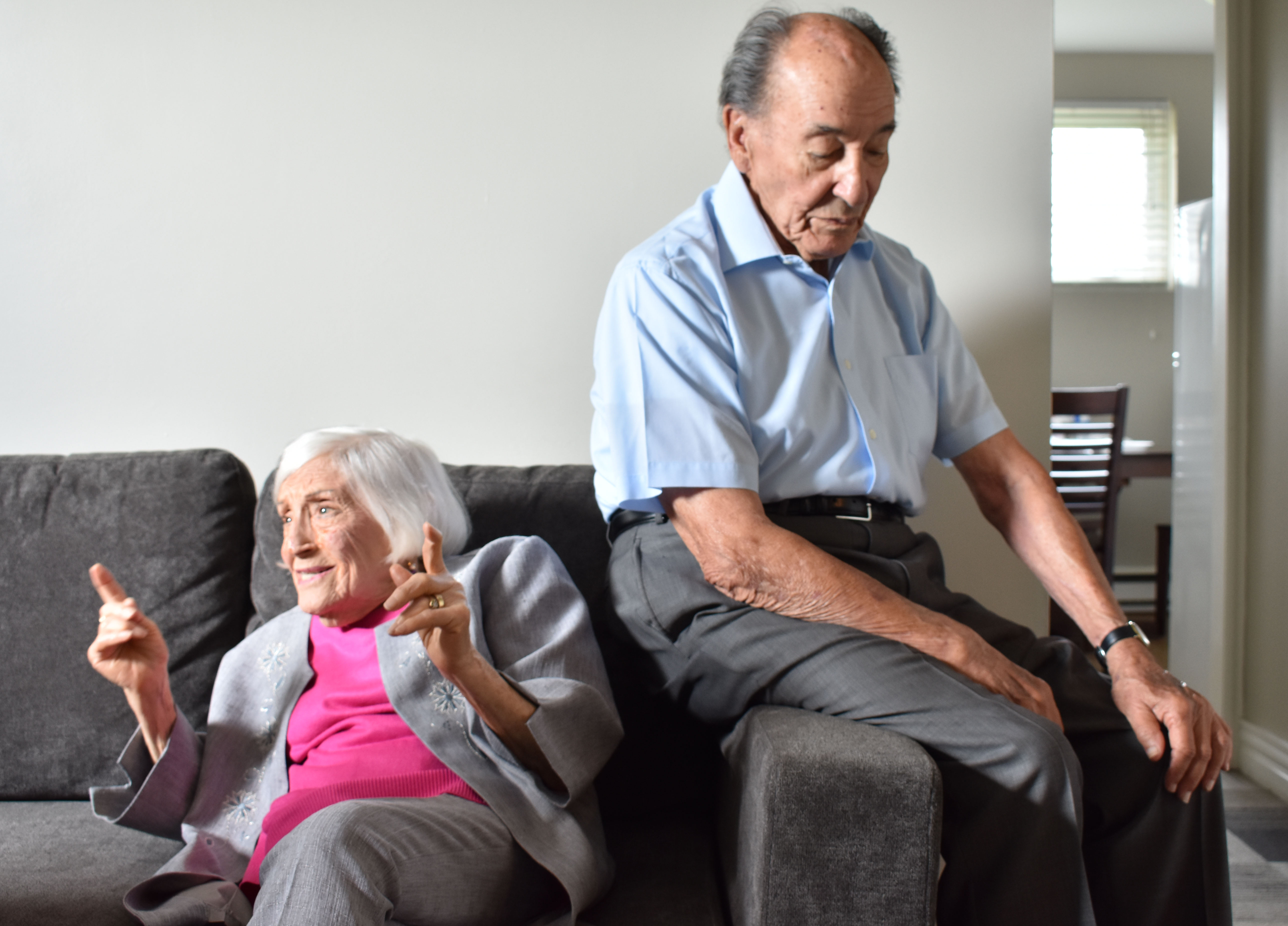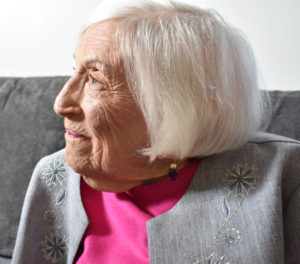A French Jewish agent in Nazi Germany during the Second World War opens up to the world and her husband about her secret past.

Melissa Wong
Kicker
Dr. Major Lewis Cohn didn’t know his Jewish wife was a former Second World War spy until she published her book.
“I knew she was in the French army and I knew (she) went into Germany alone during the war,” Major said. “But no husband and no wife will ever go into detail. I never asked her, she would tell me an incident in Germany and I would say ‘wow’ and then we’d go to bed. I am a scientist. I never sat down and said, ‘Wait for a second, how did you get from being a nurse in the army to ending up an agent for the French government to be in Germany?”
Things became clearer when the book was published.
“It all came out when she wrote her book, Behind Enemy Lines: The True Story of a French Jewish Spy in Nazi Germany, and then I had to sit down and read it and our two boys only knew that she had been in the army,” Major added. “When the first reporters came after she received the Medaille Militaire, the congressional record (medal of France), they asked my eldest son, ‘What do you think of your mother as a famous war hero?’ And he answered the reporter ‘But she is just my mom.'”
A spy comes to St. John’s
On a hot summer’s day in August, in their Torbay apartment, Major perched on the arm of the couch, like a tired bird, close to his wife, a white-haired 98-year-old lady, who had once been a spy.
“They brainwash you, so you don’t talk about it,” Marthe said. “I am a woman who knows how to keep a secret, so I never talked about it. And I never used the word spy, I was an intelligence agent for the French army … The publisher decided which title we used.”
Major agreed.
“A spy is an individual who does things for money,” Major said. “She was salaried as a sergeant and she received a sergeants’ salary to risk her life going into Germany.”
Marthe only wanted to help her country and her people.
“The boss, not of our little circle of agents, but above us, wanted to give me 25,000 French francs, which was an enormous sum then,” said Marthe. “But, I refused. I did not want to be paid for that, I did it for my country and for all my people who suffered during the occupation … I did not want to be a mercenary.”

Marthe joined the army as a nurse when the Germans had been driven out of France. She was assigned to be a social worker for the army by an intelligence officer, whom she believed did not like her. Marthe had no experience as a social worker but worked hard. After three weeks, she revealed that she spoke German and was asked to become an intelligence agent.
“At that time, all the men in the German army, from the age of 12 to old age, were all in uniform in the army,” Marthe said. “Any man in civilian clothes in the streets of Germany would be immediately noticed and arrested, that’s why they needed women.”
Marthe agreed to be an intelligence agent and underwent the training. She developed a false identity before she infiltrated Nazi Germany alone.
The couple’s visit was organized by the St. John’s branch of Chabad.
The heart remembers
According to Marthe, the Germans never destroyed the Jewish cemetery in Metz, even though they destroyed almost everything else. Although she no longer lives in her childhood home, she visits the graveyard whenever she returns.
“Every time I go to France, I go the Metz because they are all buried in the cemetery,” Marthe said. “Not my brothers and sisters – but my parents, my grandparents, my aunts, my uncles are all buried in that cemetery.”
Marthe had seven siblings including a younger brother who died at the age of two during the First World War, two older brothers, an older sister, and three younger sisters. One of her siblings, Marthe said, was killed by the Nazis.
“Stephanie was 16 months younger than I,” Marthe said. “She was arrested for resistance acts on June 17, 1942. She was imprisoned and then sent to a camp on the fringes of the city of Poitiers …”
But her sister’s fate, like six million other Jews, was a tragic one.
“She was later deported to Auschwitz and never came back.”
For more information about Marthe Cohn, visit https://www.youtube.com/watch?v=hD_JX50bY88




Be the first to comment